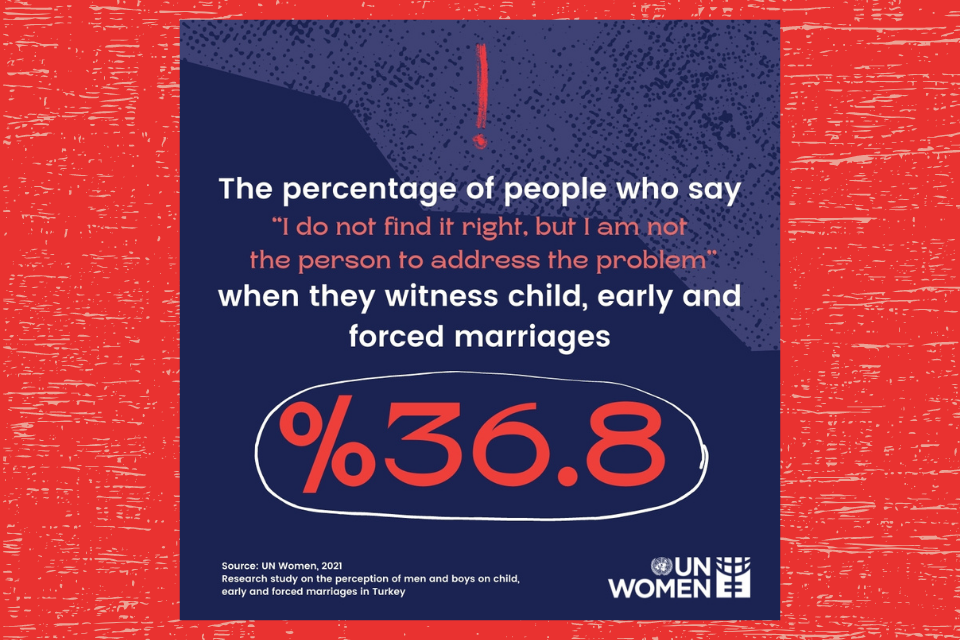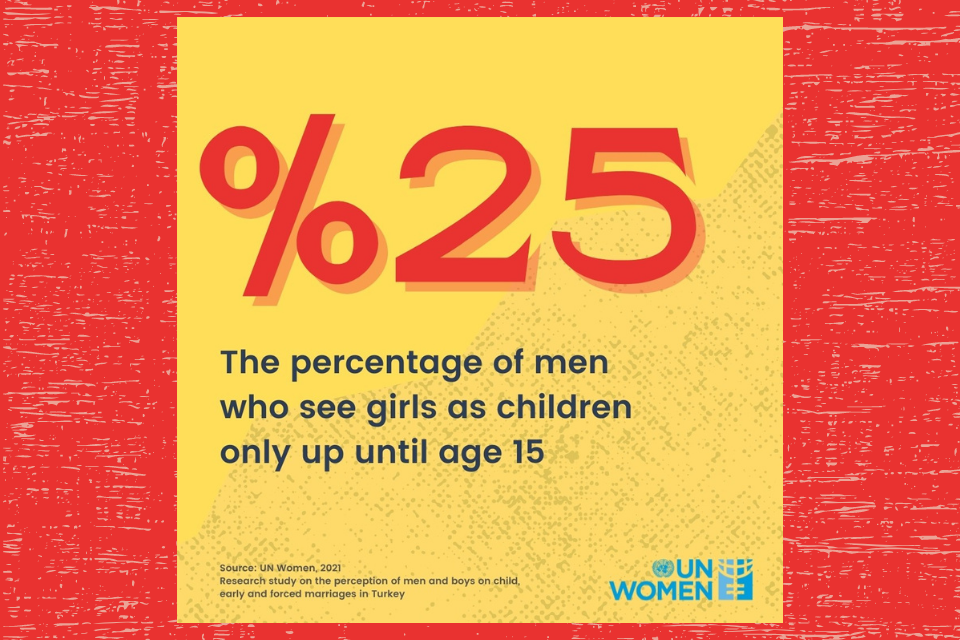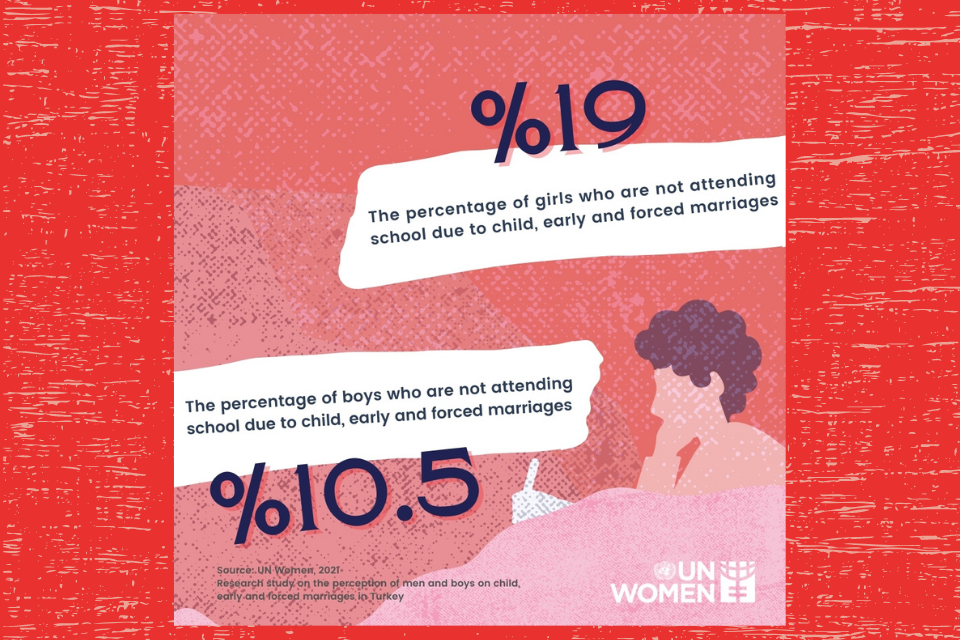A quarter of men in Turkey see girls as children only up until age 15
UN Women published a new report presenting the perception and attitudes of men in Turkey towards child, early and forced marriages.Date:
Based on research carried out by SAM Research and Consulting under the leadership of UN Women, the report provides a comprehensive analysis of perception held by people across Turkey on child, early and forced marriage (CEFM). The report also presented people’s attitudes to CEFM, as well as the underlying reasons and impacts of these practices in Turkey.
The report is based on quantitative and qualitative data collected through interviews and focus groups carried out with men and women living in different provinces of Turkey. It maps perceptions and attitudes around concepts such as childhood and adulthood, marriage age and practices, family and relations, individuality, gender equality and norms as well as CEFM in Turkey.
Ten percent of men consider that girls who have started to menstruate are ready for marriage, whereas only 2.5 percent think that the onset of puberty is a valid reason for boys to marry.
The study is the first to comprehensively analyse how men’s perceptions and attitudes act as enabling or preventing factors for child, early and forced marriages in Turkey. It shows a direct and strong correlation between higher awareness among men about the importance and benefits of gender equality with consequently more egalitarian practices and less tolerance and acceptance of CEFM.
Speaking at the virtual launch event of the report, UN Women Turkey Country Director Asya Varbanova stated: “We can achieve gender equality only when men question and challenge power dynamics in their actions or their words and take responsibility for change. We know that through their actions and their engagement men can transform social norms, behaviours and the gender stereotypes that perpetuate discrimination and inequality”.
The report provides important guidance that will help men and boys to play a stronger role in creating behavioural change, eliminating CEFM and achieving gender equality.
While the rate of girls unable to attend school due to CEFM is 19 percent, this rate is only 10.5 percent for boys.
Speaking at the online event, Sweden’s Ambassador to Turkey, H.E. Staffan Herrström stated: “This research is unique since it aims to understand the patriarchal and social norms that contribute to the perception and practice of men. Once the perceptions are understood, interventions that would work to raise awareness on gender equality among men and boys will be more successful”.
The report findings are expected to inform the development of further measures and policies aimed at transforming harmful social norms and attitudes in Turkey, in line with the Sustainable Development Goals.
UN Women published the Research Study on the Perception of Men and Boys on Child, Early and Forced Marriages in Turkey as part of the United Nations Joint Programme for the Prevention of Child, Early and Forced Marriage (CEFM) in Turkey and with the financial support of Sweden through the Swedish International Development Cooperation Agency (SIDA).


